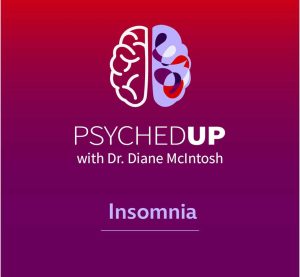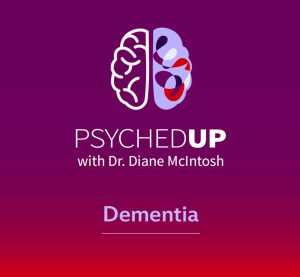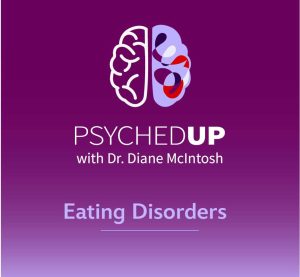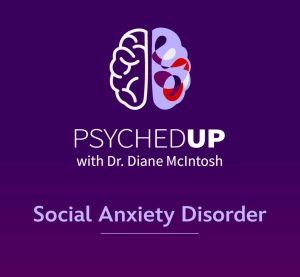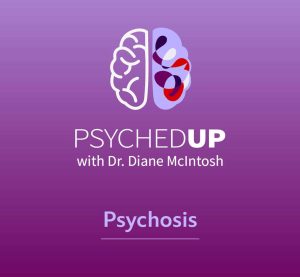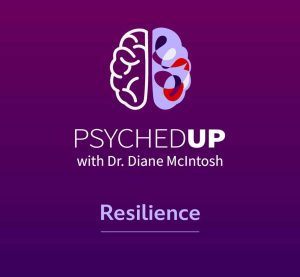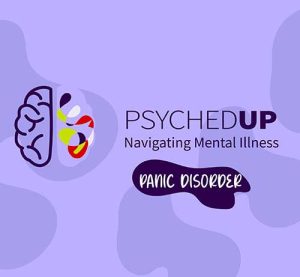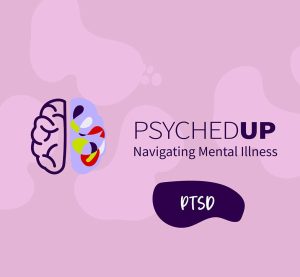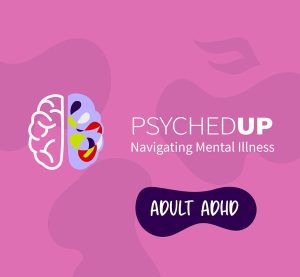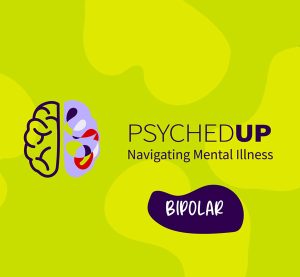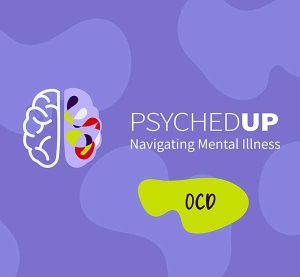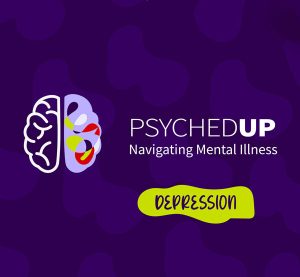
Psychosis

This is Psychosis
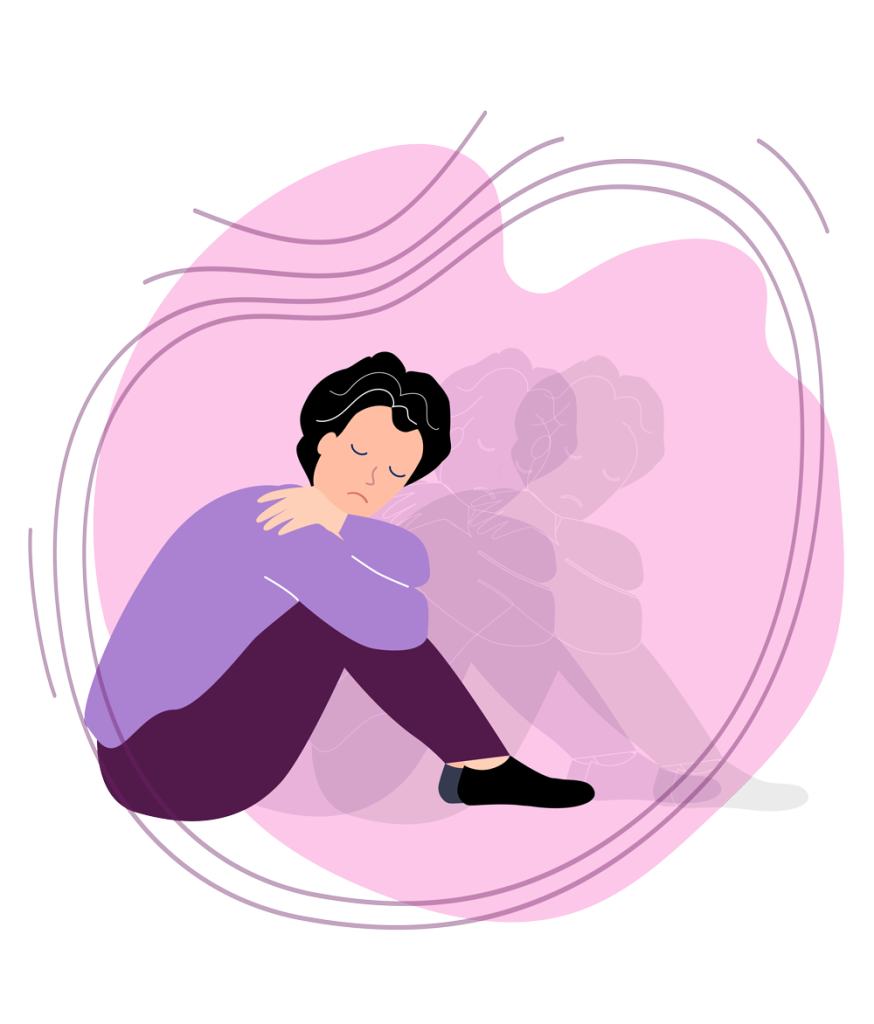
Psychosis refers to a group of symptoms, which can be associated with several different disorders.
Imagine navigating your day while battling voices, visions, and distorted beliefs. This is John’s reality and the starting point for a powerful conversation on psychosis.
In this episode of PSYCHEDUP, Dr. Diane McIntosh explores psychosis through John’s lived experience, highlighting how symptoms such as hallucinations, delusions, and disorganized thinking affect people living with schizophrenia, bipolar disorder, and severe depression. She is joined by Dr. Randy Mackoff to discuss the roles of medication and cognitive behavioural therapy in managing psychosis, emphasizing the importance of early treatment and support.
Hear John’s story, understand the effects of stigma, and gain practical insights on early intervention, resilience, and family advocacy in mental health treatment.
Thinking of suicide or worried about someone you know? Call or text 9-8-8, toll-free, anytime, for support.

PODCAST GUEST
Dr. Randy Mackoff, PhD
Registered psychologist
Dr. Randy Mackoff is a registered psychologist in British Columbia. He has a private clinical practice where he provides psychological treatment for a wide range of issues, including but not limited to depression, anxiety, PTSD, coping with psychosis, and marital therapy. He is a retired Professor in the Criminology Department at Douglas College and a past Chairperson of the Criminology Department. He is a Clinical Associate in the Clinical Psychology Department at Simon Fraser University, providing clinical supervision to graduate students. He currently consults with law enforcement agencies in Crisis Negotiations, Undercover Operations, Witness Protection, Psychological Support for witnesses, Source Suitability, Major Crimes, Recruiting, and Human Resources. He is a designated Vancouver Police Department Psychologist and represents them at the Major Cities Chiefs Association Psychology meetings. He is the Co-Chair of the Psychology Committee for the Canadian Association of Chiefs of Police (CACP).
More About Psychosis
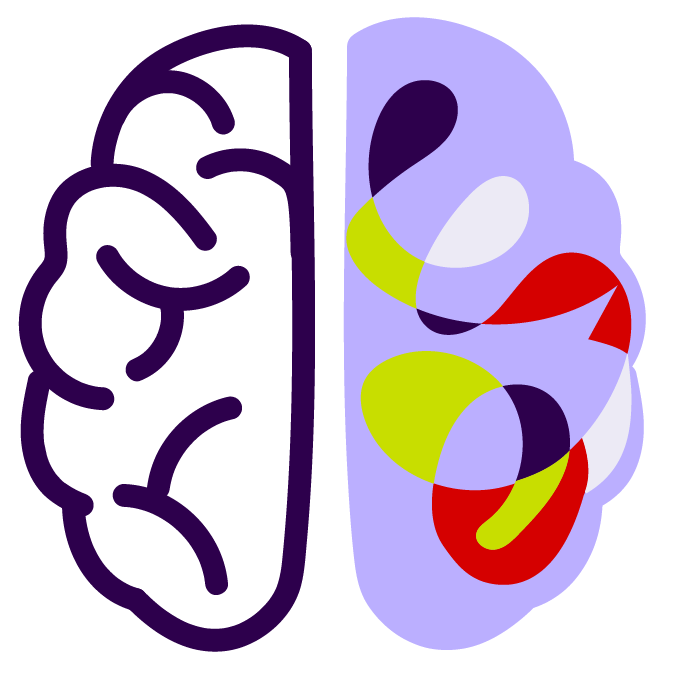
Psychosis is not a single disorder but a group of symptoms that can appear in several mental illnesses, including schizophrenia, bipolar disorder, and severe depression. At its core, psychosis involves a partial loss of contact with reality, where thoughts, perceptions, beliefs, and behaviours may become distorted. While it can be frightening and confusing, both for the person and their loved ones, psychosis is treatable, and recovery is expected.
Psychosis can affect thoughts, perceptions, beliefs, and behaviours. Common symptoms include:
- Hallucinations: sensing things that aren’t real, such as hearing voices, seeing things, or even smelling things that others don’t perceive.
- Delusions: strongly held false beliefs, which vary by condition:
- Persecutory or paranoid delusions: common in schizophrenia; involve beliefs that others are out to harm or monitor you. They are often dark, threatening, and deeply distressing.
- Implausible delusions: beliefs that have no basis in reality, like alien abduction or secret government missions. They are less common but can be highly disruptive.
- Mood-congruent delusions: reflect emotional state, typically in depression, such as believing one has a fatal illness. These delusions reinforce feelings of sadness, hopelessness, or guilt.
- Disorganized thinking and behaviour: speaking or acting in ways that are hard to follow or chaotic, making daily functioning difficult.
- Negative symptoms: a reduction or absence of normal behaviours, such as lack of motivation, inability to start activities, or emotional flatness.
- Medications
Antipsychotics are the primary treatment. They manage psychotic symptoms and can also help stabilize mood, reduce anxiety, and support depression. Treatment varies by condition:- Schizophrenia: Antipsychotics, sometimes with additional medications for depression, anxiety, or insomnia.
- Bipolar disorder: Antipsychotics, mood stabilizers, or both.
- Psychotic depression: Typically a combination of antidepressant and antipsychotic.
- Psychotherapy
Cognitive Behavioural Therapy for Psychosis (CBTp) works best after medication stabilizes symptoms. Early therapy focuses on:- Reducing anxiety and stress
- Teaching relaxation and coping skills
- Building empathy and trust to reduce fear
- Supporting families in understanding and helping their loved one
- Hospital Support
Severe episodes may require hospitalization to ensure safety and provide structured care, including medical evaluation, medication management, and support from psychiatric nurses and social workers. - Family Support and Advocacy
Families play a key role in recovery by learning to:- Recognize signs of self-harm or suicide
- Communicate effectively with healthcare providers
- Advocate for their loved one
- Medications
Episode Highlights
1:05
John’s experience of unpredictable hallucinations

4:09
Understanding psychotic symptoms: Diane explains hallucinations, delusions, disorganized thinking, and negative symptoms.
10:38
John’s turning point leading to his first psychiatric evaluation and diagnosis.
15:09
Expert insights with Dr. Randy Mackoff and Dr. Diane McIntosh
25:15
Dr. Diane McIntosh's Shrink Wrap: the balance between freedom from illness and the ongoing need for treatment, with John sharing his path to stability and hope.
Key quotes from the episode
“At the time I didn’t know that anything was wrong. I thought it was normal for people to believe that others hated them. And that also that life was not worth living.”
5:58
“It’s one of the reasons why I have so much sympathy for the people who are living on the street. If I see somebody talking to themselves, I know exactly what’s going on. They’re having a real conversation with a real person in their mind.” 12:25
“I’ve come to the realization that for whatever reason, I’m basically just gonna have to take [medication] forever because every time I try not to take them, I relapse.” 27:13
“I would say that everything is under control and that I am as healthy as I have ever been and better able to function at a high level than ever before. And that is due to the treatment that I have received, mainly, and without wanting to blow my own horn, I’ve put a fair bit of effort into it myself.” 28:20
“I wouldn’t want anybody to get discouraged if they don’t get a 100% cure because even a 95% cure is tremendous improvement.” 29:09
Other PSYCHEDUP Episodes
Season 2
Season 1
Related Posts on Psychosis
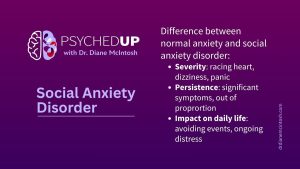
When Does Anxiety Become a Disorder?
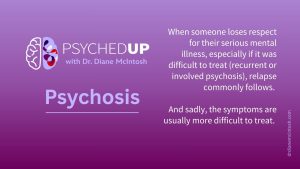


I’m Psyched About Mental Health Education
Feedback on the Podcast?

Psychiatric Guidance for Optimal Patient Care
Founded by Dr. Diane McIntosh, RAPIDS Health provides timely, effective clinical decision support for mental health diagnosis and treatment. Whether you’re a clinician or someone seeking help, we offer evidence-based, personalized treatment guidance tailored to each individual’s needs.


